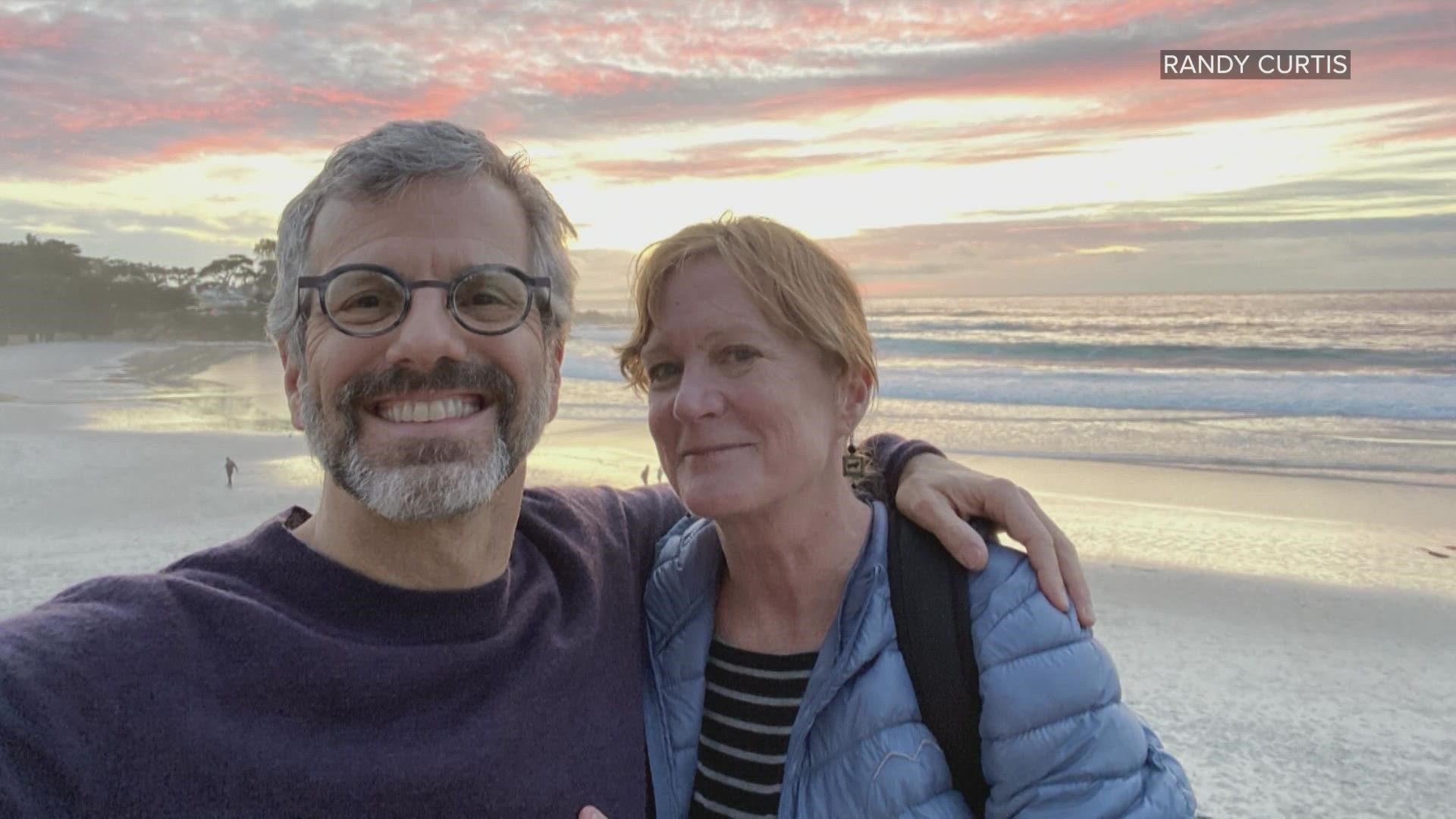SEATTLE — A UW Medicine doctor, who dedicated his career to helping people make difficult decisions about their treatment, now faces a challenge of his own.
Dr. Randy Curtis is an expert on end-of-life care, and his recent diagnosis will send him on a journey many of his patients have traveled.
“I started noticing slurring of my speech and a little more coughing when eating or drinking in January of this year,” he said.
He tried to ignore it at first. Even doctors are sometimes reluctant to face grim news.
The symptoms worsened, and after visits with specialists, Curtis told his wife Amy the diagnosis: ALS, a terminal disease that will eventually rob him of his ability to speak, eat, and breathe.
“It was shattering for both of us,” he said.
The doctor is now a patient, one with a profound understanding of what is to come.
Dr. Curtis is co-director of the UW Medicine Cambia Palliative Care Center of Excellence. All they do is work with patients who are seriously or terminally ill.
“So much of what we know about palliative care and communications around end of life care in the ICU is because of the work Randy has done,” said Dr. Andy Luks, who works with Curtis.
Curtis said he’s tried to change people's perceptions of that often-scary chapter of treatment.
“I don’t feel palliative care is associated with dying, it's associated with serious illness and with having the best living that you can while you have serious illness,” he said.
He said that means helping patients do things they truly value with the time they have left, rather than avoiding reality or focusing only on the clock running out.
Here’s a good example - Curtis is still working.
“I’ve always loved what I do, I really love what I do now that I let go of all the things that I found irritating and less important,” he said.
He said mentoring others has been, and still is, a priority.
“It's one of the most rewarding things I do,” Curtis said.
“Randy has a special gift for mentoring others, helping people find their passion and their path by providing his support and wisdom. Personally, I am a better doctor, a better researcher, and overall, a better person because of the influence he's had in my life and in my career,” said Dr. Erin Kross, co-director of the Cambia Palliative Care Center of Excellence at UW Medicine.
Away from the office, Curtis is spending more time with his family.
And while he’s devoted decades to studying the journey he is now on, there are aspects of this experience no amount of knowledge can fully prepare him for.
“I’ve had times since the diagnosis when I’m really able to focus on joy and gratitude, but I’ve also had times when I’m overwhelmed by sadness and loss and I wish my experience in palliative care would make that sadness and loss easier, I don’t think it does. It's just something I have to go through, there’s no shortcut around that,” Curtis said.

